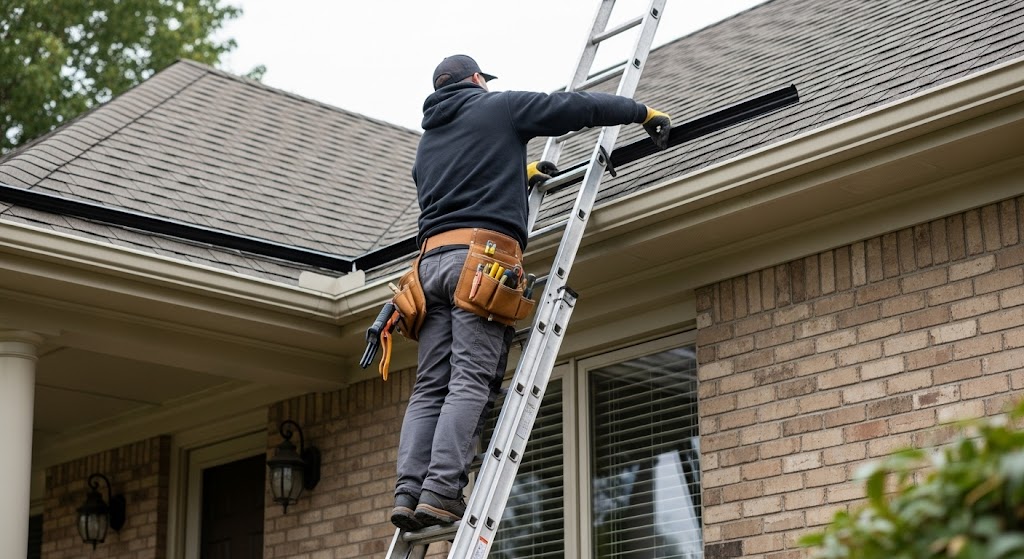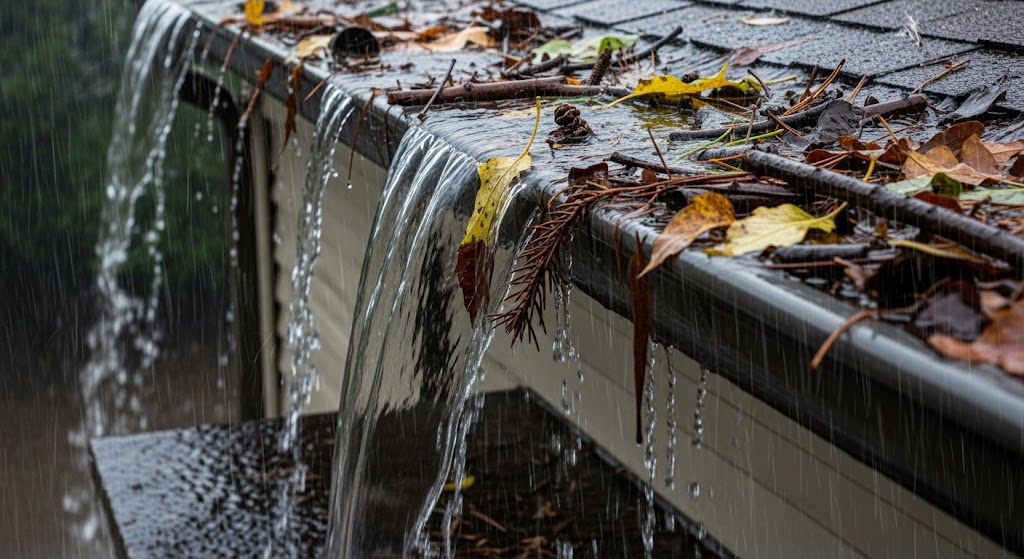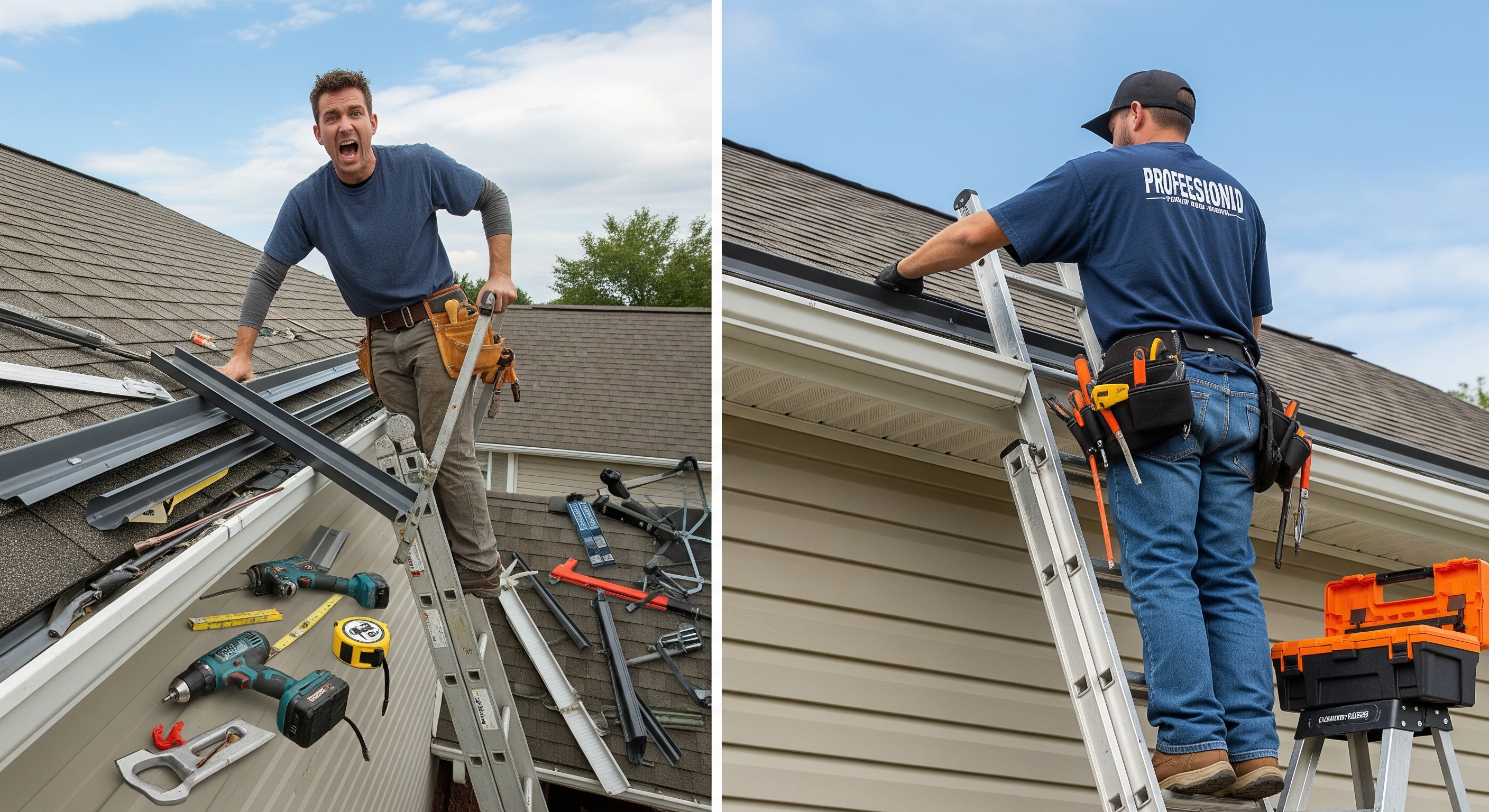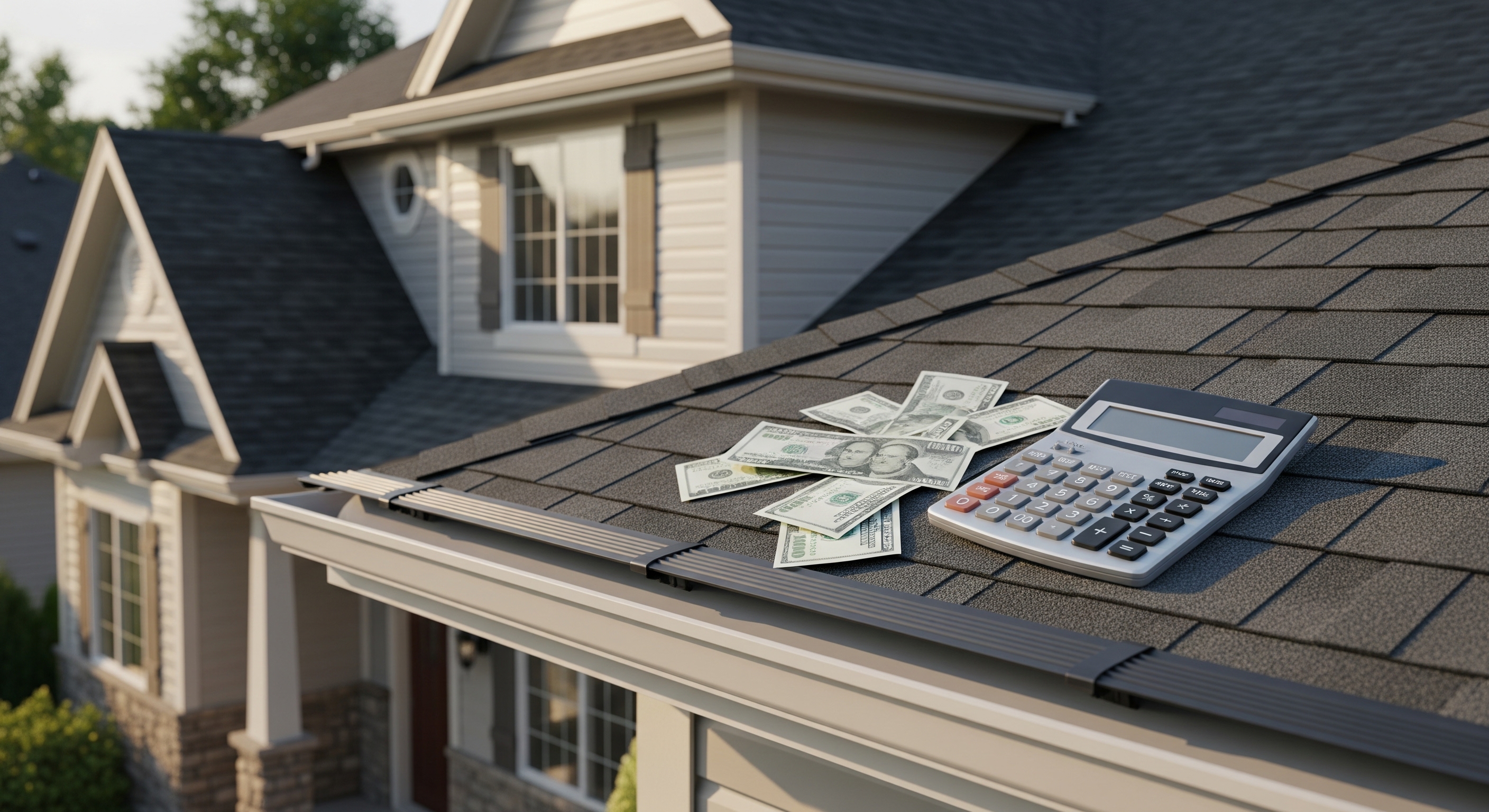
How to Choose a Reliable Gutter Repair Service in Madison?

Gutter Repair in Madison is an essential consideration for homeowners navigating Wisconsin’s variable climate. Madison’s distinct seasons from spring rains to winter snow and ice place gutters under constant stress, making timely repairs vital. Decades of local experience show that choosing the right contractor not only safeguards a home’s foundation but also extends the lifespan of roofing elements like fascia and soffit. By understanding cost variables, professional credentials, and customer feedback, homeowners can make informed decisions that prevent costly water damage.
How much does gutter repair cost in Madison?
Gutter Repair in Madison costs vary based on the scope of work and material type. Repairing a small leak or resealing joints typically falls between $4 and $8 per linear foot, whereas more extensive fixes such as replacing downspouts or reinforcing sagging sections can reach $12 to $20 per linear foot. Seasonal factors also affect pricing: after heavy spring storms or winter ice dams, urgent repairs often incur additional labor fees. Homeowners should request itemized quotes that distinguish material costs (aluminum, vinyl, copper) from labor and disposal fees to compare contractors accurately.
Madison’s average rainfall of 36 inches per year and snowfall exceeding 50 inches drive many common issues like ice dam formation and debris blockages. Addressing these problems early can reduce long-term expenses, since unchecked clogs generate basement leaks and foundation erosion. Seasonal maintenance contracts may offer bundled savings, combining quarterly inspections with emergency response services. Ultimately, transparent pricing, backed by written estimates and clear warranty terms, ensures there are no hidden surprises on the final invoice.
What should homeowners look for in certified gutter professionals?
Certified gutter professionals bring specialized training and industry best practices to every project. Prospective customers should verify that technicians hold manufacturer certifications for leading systems—such as seamless gutter installations by Alcoa or K-Style profiles. These credentials ensure precision cutting, leak-resistant seams, and proper pitch adjustment to promote self-clearing flow.
Insurance coverage is equally critical: a fully insured contractor protects homeowners from liability in case of on-site injuries or accidental property damage. Contractors affiliated with trade organizations like the National Association of the Remodeling Industry (NARI) or local chapters of the Better Business Bureau demonstrate a commitment to ethical standards and continuing education. Checking for worker’s compensation, general liability, and commercial auto policies further distinguishes serious professionals from DIY outfits.
Licensing and insurance
Valid state licensing confirms that a contractor meets Wisconsin’s regulatory requirements for home improvements. Licensing boards examine technical competence, financial responsibility, and ethical business practices. Homeowners can cross-reference license numbers on the Department of Safety and Professional Services (DSPS) portal to ensure good standing.
Insurance details should include policy numbers and carrier information. Contractors should provide Certificates of Insurance (COIs) upon request, specifying limits for general liability (minimum $1 million) and worker’s compensation. Securing these documents in writing prevents potential coverage gaps if accidents occur during gutter cleaning, repair, or replacement operations.
Experience with local weather challenges
Madison’s freeze-thaw cycles and heavy rainfall demand specialized repair techniques. Contractors adept at mitigating ice dams use heated cable installations and ensure adequate roof insulation to prevent uneven snowmelt. Those familiar with spring pollen, summer storms, autumn leaf shed, and winter ice can recommend tailored maintenance schedules.
A proven track record in Dane County or the greater Madison metro area indicates that a contractor understands local building codes, drainage ordinances, and community-specific challenges. Requesting project portfolios or references from recent gutter replacement or repair jobs provides insight into a contractor’s adaptability and workmanship quality.
Why are local reviews critical when selecting top-rated gutter contractors?
Local reviews offer unfiltered insights into a contractor’s performance, from punctuality to cleanup diligence. Madison homeowners frequently share experiences on platforms like Angi, Yelp, and Google Business Profiles, highlighting responsiveness after sudden hailstorms or heavy downpours. By filtering reviews for keywords such as “seamless gutters,” “ice dam removal,” and “foundation leak,” prospective clients can pinpoint specialists in their precise area of need.
Review patterns also reveal how contractors handle post-service issues. A company with prompt follow-up on minor leaks or misplaced fasteners demonstrates accountability, a cornerstone of professional service. Conversely, recurring complaints about unscheduled delays or lack of communication may signal looming frustrations. Always verify that glowing testimonials correspond to verifiable projects and avoid businesses with abruptly inflated review scores.
When is the right time to schedule regular gutter maintenance?
Seasonal scheduling aligns maintenance efforts with peak stress periods. A spring inspection removes winter ice-dam remnants and checks for loose hangers loosened by freeze-thaw expansion. Early summer evaluations identify storm damage from hail or high-velocity winds. Fall clean-outs clear leaves and stray twigs before the first snowfall, preventing compaction and ice-blocking. Finally, a mid-winter visit—if weather permits—verifies that heated cables or ice guards remain functional.
Routine maintenance not only prevents clogs but also uncovers developing issues such as minor pitch misalignments or corroded joints. Contractors offering quarterly checks often include minor resealing services at no extra charge, adding value and minimizing the risk of emergency repairs. By signing a year-long service agreement with predetermined visit dates, homeowners secure priority scheduling during peak gutter season.
How do seamless gutter installations compare to traditional sectional systems?
Seamless gutters, custom-measured and manufactured on-site, eliminate joint leaks common in sectional systems. Traditional sectional gutters rely on clip-in connectors, which can separate under snow loads or heavy debris, resulting in water overflow at seams. In contrast, continuous aluminum or copper seams require only end caps and downspout junctions, reducing leak points to a minimum.
Beyond leak prevention, seamless systems offer a cleaner aesthetic, matching the home’s architectural lines without visible joinery. While the initial investment may be 10–15% higher than sectional alternatives, seamless gutters deliver long-term savings by minimizing maintenance and prolonging system longevity. Homeowners should assess local humidity, pollen counts, and tree coverage to determine whether gutter guards or mesh inserts can further augment seamless designs.
How long does a typical gutter repair last?
Minor repairs such as resealing joints and tightening brackets can last anywhere from three to seven years, depending on material quality and weather exposure. Aluminum gutters exhibit rust resistance but may suffer denting, while vinyl systems resist corrosion but can become brittle in subzero temperatures. Copper gutters boast a lifespan exceeding 50 years but at a premium cost, often suited to historic homes or high-end renovations.
Preventive measures—like installing leaf guards, scheduling annual inspections, and ensuring proper downspout extension—extend repair longevity by reducing strain on vulnerable sections. Contractors who apply silicone-based sealants or polymer-modified roofing cement at joint interfaces provide more durable bonds than traditional bitumen, increasing the interval between service calls.
Comparison of Top-Rated Gutter Contractors in Madison
What types of gutter materials are best suited for Madison’s climate?
Aluminum remains the most popular choice due to its lightweight profile, affordability, and rust resistance. Vinyl gutters cost less but may warp under prolonged sun exposure or crack during severe winter freezes. Copper gutters develop a patina over time, resisting corrosion indefinitely but at a significantly higher material cost. Galvanized steel offers robust strength but requires diligent maintenance to prevent rust.
Homeowners should also weigh leaf guard compatibility. Materials with baked-on enamel finishes work well with mesh or nano-filter guards, preventing clogging from oak and maple leaf debris common in local neighborhoods. Consulting with a certified installer ensures material-guard combinations meet warranty requirements and local building codes.
How to verify contractor reliability before signing a contract
Start by requesting three independent quotes to gauge fair market value. Each estimate should detail labor hours, material specifications, warranty coverage, and cleanup procedures. Comparing these line by line illuminates hidden cost drivers—such as gutter disposal fees or extra ladder charges—and clarifies scope differences.
Next, check the contractor’s Better Business Bureau profile for accreditation status and complaint history. In Wisconsin, licensing verification through the DSPS portal confirms legal compliance. Finally, ask for references from recent gutter repair projects; speaking directly with past clients reveals nuances like timeliness, professionalism, and attention to detail that can’t be gleaned from online reviews alone.
How do warranties and service guarantees impact decision-making?
Contractor warranties protect against premature failures, covering workmanship defects and material flaws for specified periods. A standard minimum of a five-year workmanship guarantee coupled with manufacturer warranties (typically 20–25 years for aluminum) offers peace of mind. Some companies provide transferable warranties, enhancing resale value by assuring future homeowners of system reliability.
Service guarantees often include priority scheduling for warranty work, free winter callback visits, or seasonal rebate programs. Homeowners should read fine print to understand prorated replacement costs after the initial coverage period and any exclusions—such as damage from falling branches or vandalism.
Gutter Repair in Madison can feel overwhelming without clear evaluation criteria. By assessing cost transparency, certifications, local reviews, and material suitability, homeowners establish a solid foundation for selecting a reputable contractor. Proactive vetting streamlines the process, ensuring durable repairs and minimizing water intrusion risks.
Professional consultation remains the most reliable way to tailor solutions to each home’s unique characteristics. When facing severe storms or persistent leaks, Contact us to schedule a comprehensive inspection. Certified technicians will analyze gutter pitch, downspout placement, and drainage patterns, presenting recommendations aligned with both performance goals and budget constraints.
Home Defender USA stands ready to deliver expert gutter repair and maintenance services throughout Madison. Leveraging local insights, certified teams, and customer-first communication protocols, Home Defender USA ensures that each project—whether a minor sealant touch-up or full seamless gutter overhaul—meets the highest quality standards. Choose reliability, safety, and longevity; choose a partner committed to defending your home against water damage year-round.
Frequently Asked Questions
1. How often should gutters be cleaned in Madison?
Professional guidelines recommend cleaning gutters at least twice a year—in spring and fall. Homes surrounded by mature trees or heavy leaf fall may require quarterly cleanings, especially before winter freezes to prevent ice dams.
2. Can a simple patch fix major gutter leaks?
Patching small holes or cracks can serve as a temporary solution, but widespread corrosion or sagging often necessitates section replacement. A thorough inspection determines whether resealing or full panel swap best addresses the issue.
3. Are gutter guards worth the additional investment?
Gutter guards reduce debris accumulation, lower maintenance frequency, and protect against wildlife nesting. Although the upfront cost is higher, many homeowners recover expenses through fewer service calls and extended gutter life.
4. What permits are required for gutter replacement in Madison?
Most residential gutter repairs and replacements are exempt from building permits in Madison, though installation of extensive downspout diverters or major exterior modifications may trigger local permit requirements. Verify with the city’s building inspection office.
5. How can homeowners prepare for a gutter repair appointment?
Clear ground access around your home exterior and remove any landscaping that could hinder ladder placement. Providing past maintenance records or photos of gutter issues lets technicians diagnose problems more efficiently.














.jpg)











